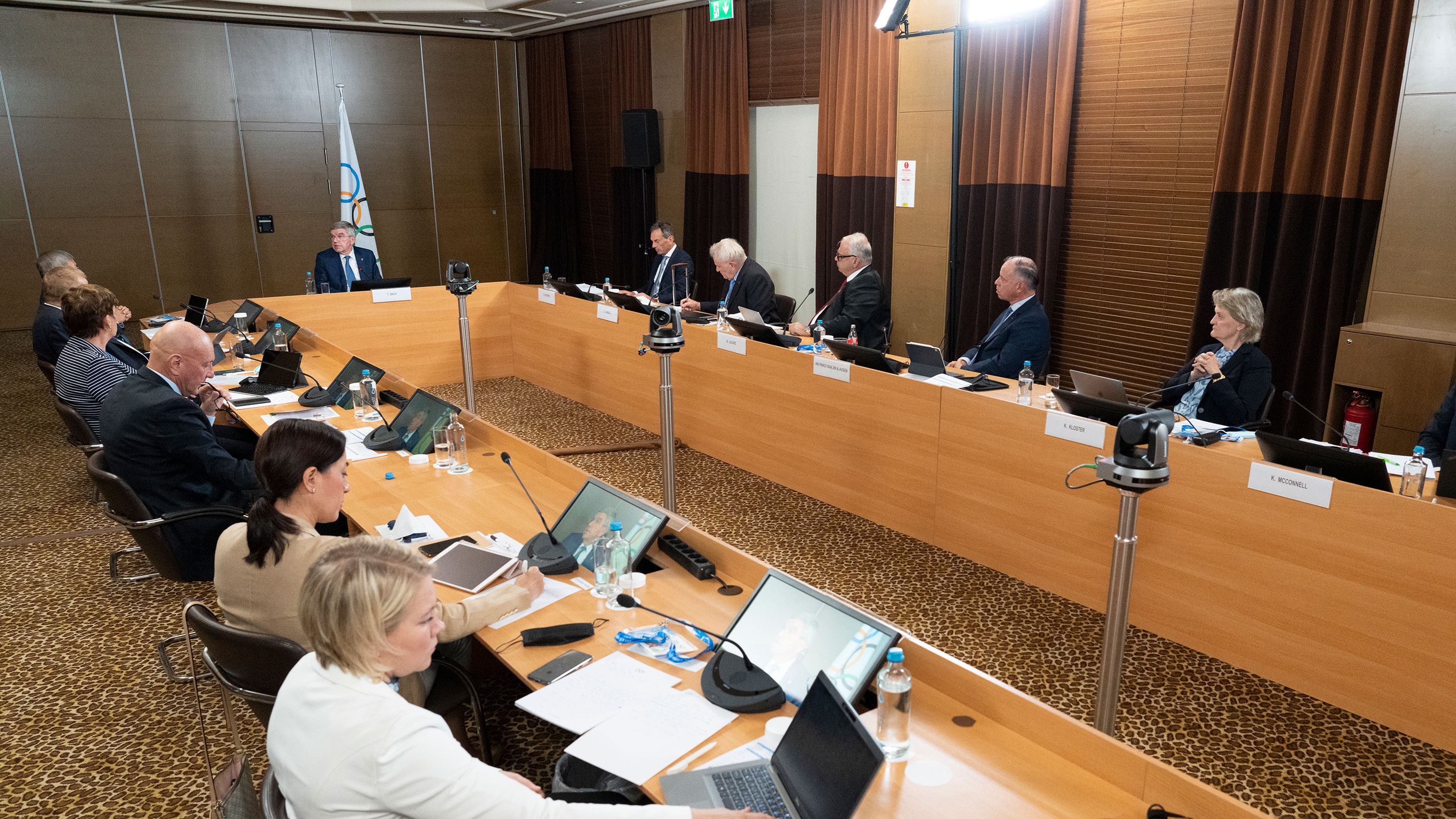By Paul Nicholson
October 18 – The International Olympic Committee (IOC) has formally noted the concerns of other sports and football’s own stakeholders and has called for a “wider consultation…which has obviously not taken place.”
When FIFA announced its proposed plans for a biennial men’s World Cup, a number of other major Olympic federations expressed concern that doubling up would clash with their own calendars and in particular their own media and commercial deals in a market where football already sucks up more than the lion’s share of revenue.
In its statement the IOC noted their member concerns on how a biennial World Cup would impact on other sports, saying that the clash with sports including “tennis, cycling, golf, gymnastics, swimming, athletics, Formula 1 and many others… would undermine the diversity and development of sports other than football.”
The IOC said the increasing events in the men’s calendar would “create challenges for the further promotion of women’s football”, and maintained that the doubling of the frequency would “create a further massive strain on the physical and mental health of the players.”
The IOC said that it shares concerns of its members and that it “supports the calls of stakeholders of football, International Sports Federations and major event organisers for a wider consultation, including with athletes’ representatives, which has obviously not taken place.”
FIFA’s strength in its proposal is that its executive can pretty much railroad though any proposal anything it wants to – the vote on the biennial World Cup could be held as early as this December.
Infantino has total control of Africa’s member associations, has a very complaint Concacaf and submissive Caribbean, has Oceania in its back pocket, as well as having made inroads into a number of Asia’s smaller and more impressionable (read easily bought) federations.
That gives FIFA a majority of its 211 member associations if it came to a full vote on the proposal. However, the IOC’s intervention could provide a significant wrinkle to FIFA’s plan.
Most football federations in smaller nations rely on significant grassroots funding from their National Olympic Committees which are government backed bodies, and generally funding all recognised sports in the country. If the IOC’s member federations and sports mobilised against the biennial plan then the landscape could quickly change.
While following Infantino’s will on the football stage might bring FAs promises (not guarantees) of increased wealth via grants and subventions, the FAs could likely find themselves going against the government sports bodies that fund sports in their own countries. That could conceivably result in more unpleasant consequences for their domestic game than FIFA could hope to compensate for. And that is without considering the likely backlash in their local domestic media and with sponsors – no-one likes to be seen to be a bad national or global citizen.
Infantino was elected to International Olympic Committee during the 135th IOC Session in January 2020 in Lausanne.
On his election he said: “I am glad as FIFA President to have an active role to play in the international Olympic movement, and I look forward to making a positive contribution for the continued development of sport across the globe.”
His new-found IOC buddies welcomed him into the wider sporting world, and IOC president Thomas Bach even gave him a well-earned medal to mark the occasion. They will be looking back on that ceremony somewhat ruefully and not so enamoured with his latest “positive contribution” to sports development globally.
The IOC strips medals from doping cheats in their competitions. What do they do to members who undermine the whole sports eco-system and their own global events?
Contact the writer of this story at moc.l1714149058labto1714149058ofdlr1714149058owedi1714149058sni@n1714149058osloh1714149058cin.l1714149058uap1714149058

